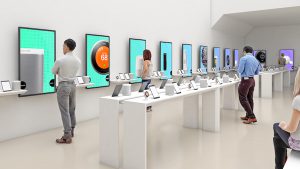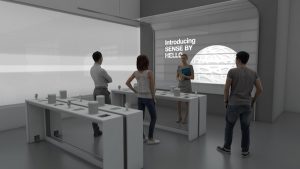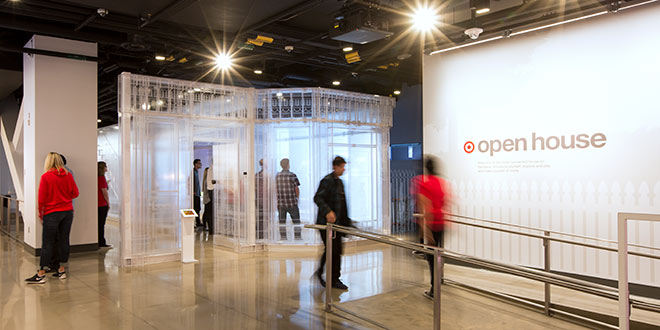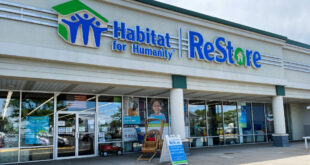In July 2015, Target launched Target Open House, a concept store in San Francisco that invites Internet of Things (IoT) entrepreneurs to debut their products in a retail space where consumers can interact with items before they buy them. IoT refers to smart devices that are not only connected to a network, but have the capability to collect and share data with each other through that network, according to Business Insider.

Target Open House has been closed since late December for the company to redevelop the space based on more than a year’s worth of entrepreneur and consumer feedback. The new Target Open House will reopen on Feb. 10.
“The plan was always for the space to be iterative and to change based on the feedback we receive from consumers and the IoT community,” says Target public relations manager Jenna Reck. “We’ve turned over the products in the space, but this is the first time we’re remodeling the space since we opened.”
Consumers can purchase the products that they interact with in Target Open House, which allows the company to see what products consumers think will add value to their lives, says Reck.
Citing a recent article by Gene Han, vice president of consumer IoT at Target, Reck says that the current IoT market has to make some improvements to meet customers’ needs.
“Does it make something cheaper, easier, faster? There are a lot of products on the market that don’t do that,” Reck says.
In order to address these challenges, the new Target Open House will allow consumers to interact with products at various stages of development. The Garage is a new space in Target Open House where consumers can interact with early-stage products before they are considered consumer-ready, she says.
A total of 16 products in The Garage will rotate out every month. Products can then transition from The Garage into the next stage of Open House, The Forum, which is focused on market-ready products. The entire space can feature up to 70 products.

During the day, Target Open House is open to consumers to browse and interact with the products on display. At night, the space transitions into an event space for consumers, startups and entrepreneurs. “We try to design events around a theme that is important to Target or is related to what people are talking about,” Reck says. Previous events have focused on IoT ideas like the connected nursery or the connected home.
A large part of Target Open House is being able to test products with consumers in a smaller, low-risk retail environment that may eventually transition into all Target stores, says Reck.
For example, Tile, a device that allows users to find lost items, like wallets or cell phones, was initially a best seller in Target Open House, so the retailer transitioned it into all Target stores. It went on to become a best seller for the 2015 holiday shopping season.
 Hardware Retailing The Industry's Source for Insights and Information
Hardware Retailing The Industry's Source for Insights and Information








